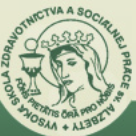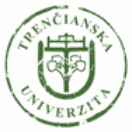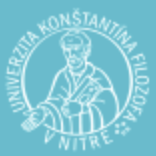Introduction to Constantine the Philosopher University
Constantine the Philosopher University is located in Nitra, southwestern Slovakia. It is a medium-sized public comprehensive university known for its high-quality education, active scientific research and rich campus life.
Overview
Student size: There are about 11,300 students, including 3,710 graduate students.
Faculty: 935 faculty members, including 564 teachers and researchers, including 78 professors and 146 associate professors.
History and establishment time
The university was founded in 1959. It was originally initiated by a missionary saint to carry out higher education on a small scale in Nitra. At that time, there were only a few hundred students. Later, it gradually developed into a university and was officially named after the Byzantine missionary Saint Cyril (Constantine the Philosopher, 827-869) in 1996.
School strength
Teaching: There are 5 There are 68 bachelor's, 49 master's and 37 doctoral programs in the college, covering many fields such as communication, healthcare, technology, art, humanities, management and economy. Its education focuses on the combination of theory and practice. For example, students in the School of Education have a lot of internship opportunities and can go deep into local schools for teaching practice, laying a solid foundation for future career development.
Scientific research: scientific research activities are rich and fruitful, and it is one of the key activities of the school. It aims to promote the development of knowledge through research projects, and effectively combine scientific research with education to promote the professional growth of faculty and staff. The school organizes important scientific, artistic and professional activities every year to showcase and disseminate research results, and has a considerable number of research papers published and cited in multiple disciplines. For example, in the 2024 ranking, the school scored in the top 50% in 22 research topics, and also ranked relatively high in research in disciplines such as biology and environmental science.
International Exchange: As a member of international organizations such as the European University Association, it has established international research cooperation with higher education institutions in many countries around the world, actively carried out student and teacher exchange programs, provided a broad international exchange platform for teachers and students, and enhanced the school's international influence.
Institutional Nature
Public non-profit university.
Educational Philosophy
Committed to cultivating harmoniously developed personalities, disseminating knowledge, wisdom, honesty and human creativity, promoting the development of education, culture and health, and contributing to a knowledge-based society. Its main goals are to provide university education, promote creative scientific research, and encourage artistic activities.
Key Laboratories and Disciplines
Key Disciplines: Biology, Environmental Science, Liberal Arts and Social Sciences are outstanding. In the field of biology, its research covers biochemistry, paleontology, genetics, botany, neuroscience and other directions. The relevant research results have a certain influence internationally. For example, in the world university subject rankings, the biology major ranks 3043rd; the environmental science major ranks 3375th, and the research involves geography and cartography, geology, ecology, paleontology, agricultural science and other major topics.
Laboratory situation: Although the school did not explicitly mention particularly famous professional laboratories, from the perspective of subject settings and scientific research results, each subject should be equipped with corresponding advanced teaching and scientific research laboratories to meet the teaching and scientific research needs of teachers and students. For example, the biology major may have molecular biology laboratories and plant physiology laboratories to provide support for scientific research projects and student practice.
Department settings
The school has the following 5 colleges:
School of Arts: Focuses on cultivating students' professional skills and creativity in the fields of music, fine arts, performance and other arts, and has provided a large number of professional talents in the field of culture and art.
School of Sino-European Studies: Focuses on research and teaching in the history, culture, society and other aspects of Central Europe, providing students with an academic platform for in-depth understanding of Central Europe.
School of Education: It is an important base for training teachers in the field of education. Its teacher training majors are rich and diverse, including 6 certified single majors and 29 dual-major teacher training learning programs.
School of Natural Sciences and Information: It covers multiple disciplines of natural sciences and information sciences, providing students with a solid theoretical foundation and practical skills training, such as computer science, physics, chemistry and other majors.
School of Social Sciences and Health Care: It is committed to education and research in the fields of social sciences and health care, and has trained many outstanding talents in sociology, psychology, medicine and other majors, contributing to the development of society and the health and well-being of the people.
Ranking
Overall ranking: 2805th in the world in 2024, 8th in Slovakia.
Subject ranking: 10th in Slovakia and 3241st in the world in liberal arts and social sciences; 8th in Slovakia and 3043rd in the world in biology; 7th in Slovakia and 3375th in the world in environmental sciences.
Expenses
Tuition: Slovak citizens or EU residents are generally free to study, and English courses for international students start at $2,500 per year, depending on the major.
Living expenses: Monthly living expenses are approximately 150-300 euros, of which accommodation costs approximately 250 euros/month and other expenses such as food are approximately 120 euros/month.
Campus
Campus facilities: The campus is located in the city, with convenient transportation and complete surrounding facilities. The school has modern teaching buildings, a library with rich collections, a research center with advanced equipment, comfortable dormitories, restaurants, bookstores and cafes, sports clubs and health care centers, etc., providing students with good learning and living conditions.
Campus life: The school organizes many cultural, social and sports activities, such as the hockey match of Nitra Universities, etc., with a long tradition. It also publishes the university magazine "náš čas" and the student magazine "ob čas ne čas", which enriches students' extracurricular life and enhances communication and interaction among students.
-

St. Elizabeth College of Health and Social Work
-

University of St. Cyril and Methodius in Trnava
-

Technical University of Kosice
-

Matej Bel University in Banská Bystrica
-

Slovak University of Agriculture in Nitra
-

Comenius University in Bratislava
-

Pavol Josef Safarik University
-

Slovak University of Technology in Bratislava
-

Alexander Dubcek University, Trencin
-

University of Žilina
-

Mesoamerican University
-

Istmo University
-

Mariano Galvez University of Guatemala
-

Regional University of Guatemala
-

Galileo University
-

Francisco Marroquín University
-

Rafael Landívar University
-

University of the Valley of Guatemala
-

University of San Carlos of Guatemala
-

Technological Institute of Tlaxcala Plateau
-

Golfo University
-

Technological University of South Sonora
-

Technological University of Huejotzingo
-

Tizimín Institute of Technology
-

Chilpancingo Institute of Technology

